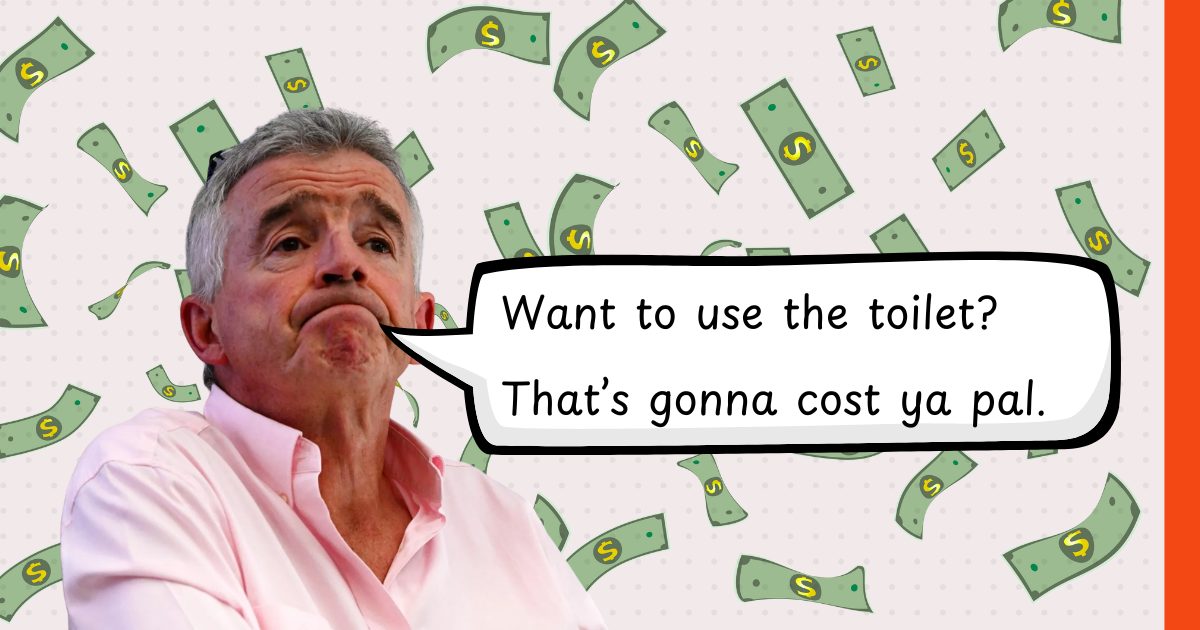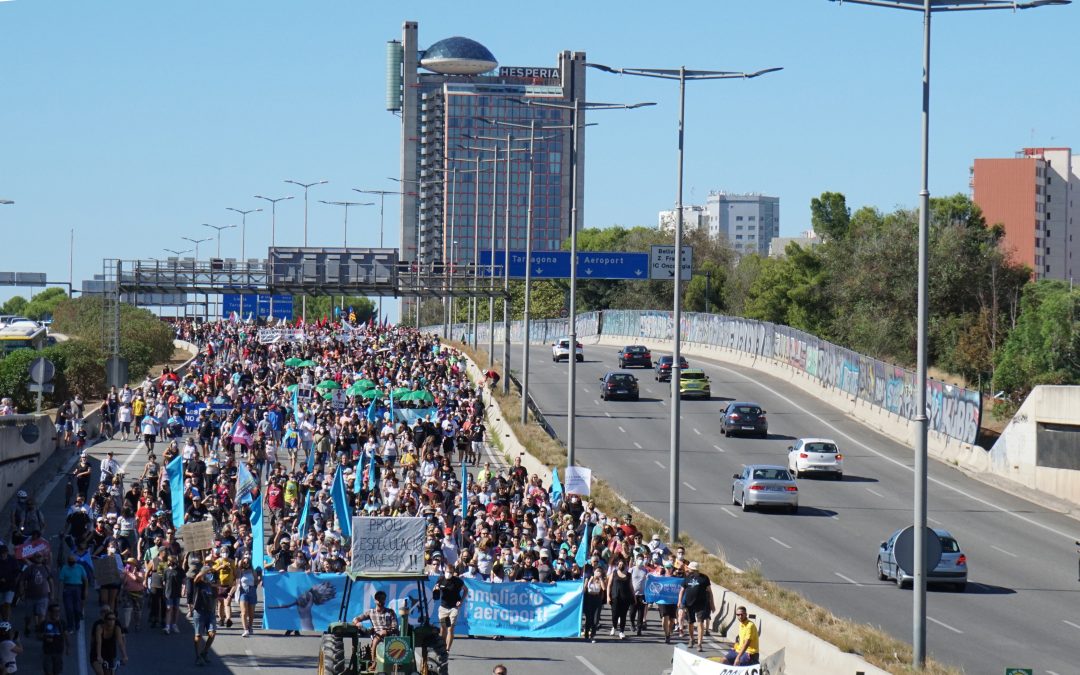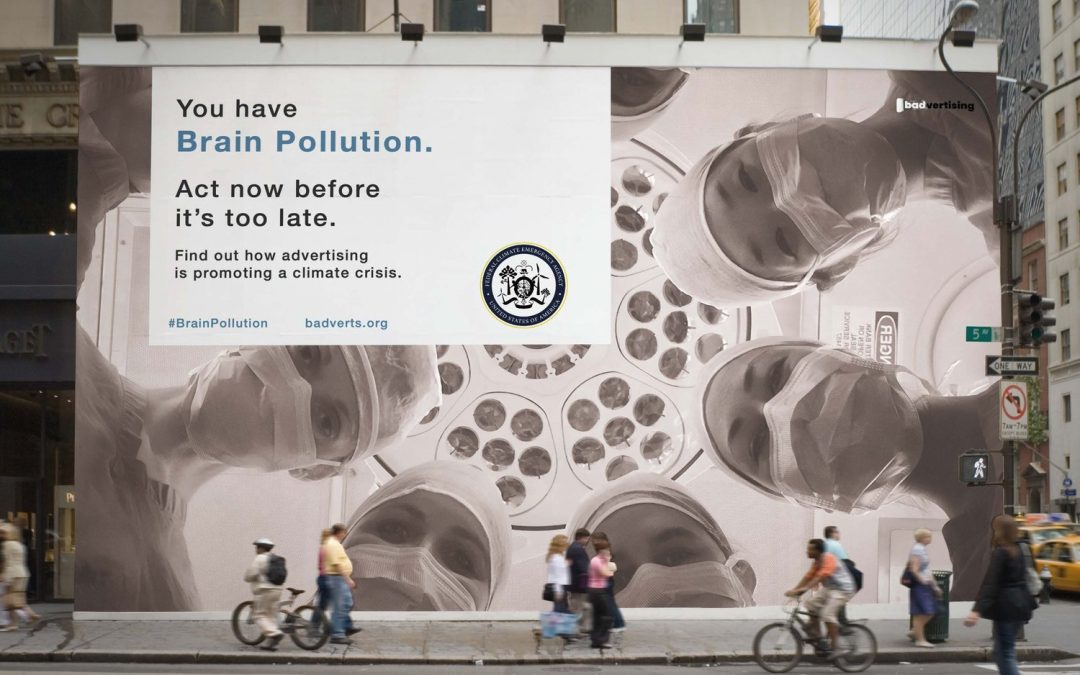(It’s not only about climate change!)
When you think about the aviation industry’s dodgy behaviour, you probably think about their massively oversized contribution to global heating (more, historically, than that of the entire continent of Africa), and maybe also noise pollution or the exploitation of workers.
But airlines also have a long record of screwing over the very people who use their services.
—
1. Misleading prices
Drip pricing and bullshit add-ons.
Airlines advertise fares that – even with the industry’s massive subsidies and tax exemptions – are impossibly low, then inflate it with “extras” that are often unavoidable: baggage charges, seat selection fees, card processing surcharges, and other “services”. Regulators have repeatedly had to step in – famously, EU regulations prevented Ryanair from charging €1 every time you wanted to use the toilet, while regulators in the UK have begun banning hidden mandatory fees, and Spain has fined carriers for charging for standard hand luggage.
It’s a model designed not to serve travellers, but to constantly upsell – extracting more money from each stage while doing nothing to reduce the sector’s devastating climate impact.
—
2. Behaviour surveillance
Dynamic pricing powered by big data – and Israeli AI.
A couple of weeks ago, the extent of data surveillance by airlines was revealed – and it’s bad. The Lever (an investigative news outlet in the US) found that airlines have started using an Israeli-built AI software that sifts through vast troves of personal data and competitor prices to “find the optimal price for each customer.” The more desperate you’re perceived to be, the higher the price. Or, to flip that on its head, the more unnecessary your flight is, the cheaper it will be (bullshit flights, anyone?). This is a process the software company’s own founder admitted could be seen as “exploitation.”
The growing number of airlines using this same AI data system increases the possibility of collusion between companies, allowing them to work together to hike up pricing.
—
3. Blocking price comparison
Less transparency means higher prices.
Airlines deliberately withhold fares from booking sites or add surcharges to travel agents, forcing people onto their own websites. This manipulates choice and shields them from competition.
(On this, for-profit train companies are just as bad, for the record.)
—
4. Selling the same seat twice
Airlines don’t know the meaning of “finite”.
Overbooking is still legal in many countries. When too many people show up, some are “bumped” from the flight. Compensation is possible in the EU and US, but only if you know your rights.
To the airline, it’s “yield management.” To those affected, it’s disrupted lives and wasted journeys – on top of the needless emissions the overbooked flights still produce.
—
5. Delaying and dodging repayments
Drip pretium et additamenta vana.
When flights are cancelled, passengers are legally entitled to refunds in most places – but airlines routinely drag their feet. During COVID-19, airlines worldwide withheld billions in refunds, forcing passengers to accept vouchers or spend months chasing their own money. In the US alone, the Department of Transportation has forced airlines to return over $3 billion since 2022, after mass violations.
It’s the aviation playbook: hang onto public and private funds for as long as possible to fuel expansion, while customers, workers, and communities carry the cost.
—
6. Taxing climate guilt
Overhyped offsets and so-called “SAF” donations.
During check-out, airlines often ask customers for money to make their flight sustainable, either through paying for a tiny amount of carbon offsets (which are often ineffective and involve landgrabbing in the Global South) or so-called “sustainable” aviation fuel (which is sometimes unsustainable, often exploitative, and always unscalable).
These donations shift the burden of responsibility to the individual, while offering no real solution and greenwashing the record of the airlines, who make fantastical claims about their offsetting and transition to so-called “sustainable” aviation fuel.
—
7. Old-fashioned cartel behaviour
Collusion is used to maximise profit at consumers’ expense.
Airlines don’t just compete – they also collude. In the mid-2000s, British Airways and Virgin Atlantic were caught coordinating on fuel surcharges, leading to multimillion-pound fines. Around the same time, regulators in Europe and the US fined multiple airlines nearly €800 million for running a global cartel on cargo surcharges.
With ticket pricing driven by opaque algorithms and data-sharing platforms, regulators warn that collusion is becoming easier, harder to detect, and more damaging – guaranteeing that customers pay inflated fares while emissions keep climbing.
—
8. The biggest scam of all…
The lie of “sustainable flying”
Airlines splash their ads with talk of “sustainable aviation fuel” (SAF) and “carbon neutral” flying, but courts and regulators are increasingly calling it what it is: greenwashing. In 2024, a Dutch court ruled KLM’s “Fly Responsibly” campaign unlawful, finding 15 of 19 claims misleading – including its use of the term “sustainable aviation fuel.” The UK’s Advertising Standards Authority also banned Virgin Atlantic’s ad claiming a flight used “100% sustainable aviation fuel,” and the EU has launched investigations into 20 airlines over false climate claims.
There is no such thing as a green flight. Every false promise of “sustainable flying” props up a climate-wrecking industry that should be shrinking, not expanding.
—
Aviation relies on a business model of exploitation – of the planet, of their workers, and even their customers.
It is no accident that they get away with it. While regulators repeatedly slap the industry on the wrist for misdemeanours, the industry will continue to be propped up by billions of euros in subsidies and tax exemptions so long as we live in an exploitative and profit-obsessed economic system.
At Stay Grounded, we do what we do because we believe that by underlining the destruction cause by the aviation industry, we can show the hypocrisy of this system. By design or disaster, the system will collapse. We work each day to make sure that it has a safe landing.



